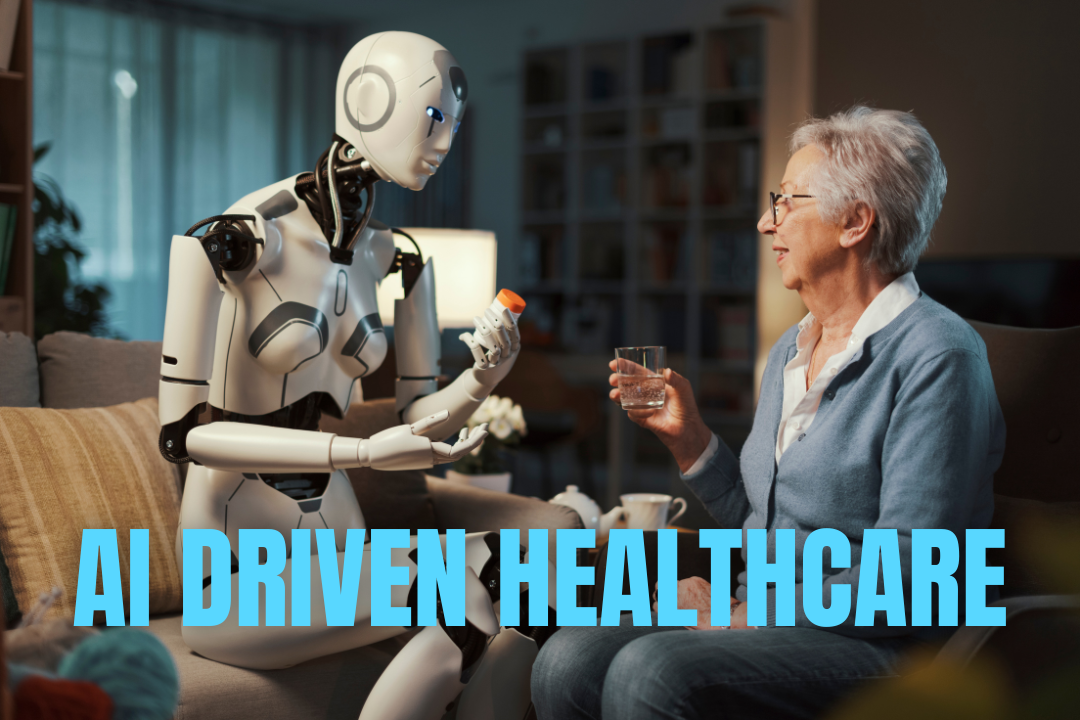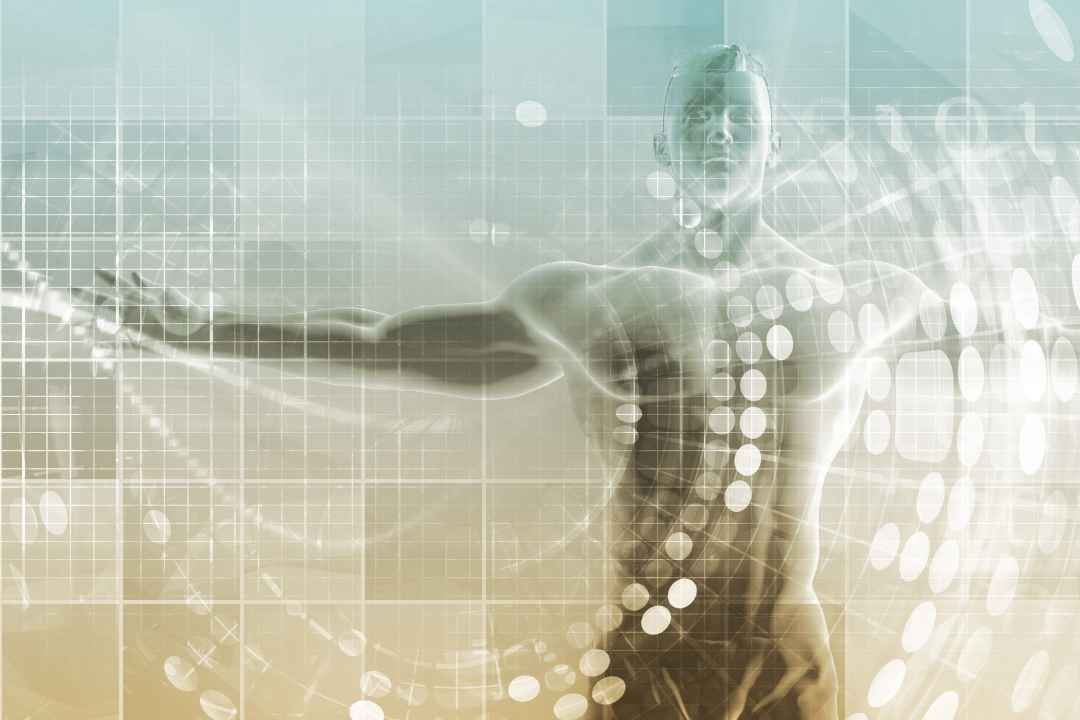How the AI-Driven health Monitoring Devices are Changing the Healthcare Market
Modern technological innovations have brought about the remote monitoring devices as one of the best, especially when they include artificial intelligence.
- This paper will therefore discuss the rising use of remote patient monitoring devices.
Home care monitoring devices have also grown in popularity since they allow patients to be monitored even at the comfort of their homes. Such devices monitor diverse health indicators, including blood pressure, blood oxygen level, and transmit it to clinicians for evaluation. Such devices are even advantageous when combined with AI, as they make it possible to track one’s state and identify diseases in their early stages.
- Advancements of Artificial Intelligence in the Delivery of Distance Health Services
Innovations in information technology, especially with the use of AI, have impacted on remote patient care in the following ways. For example, using AI to analyze data of patient history, the algorithms can identify patients who are likely to develop complications, so that measures can be taken. Also, with the use of the solutions based on AI technologies, patients will have a possibility to get engaged in their treatment process more, and follow the prescribed treatment regimens.
AI-Driven Health Monitoring: What Exercise can become a Game Changer for Chronic Diseases
Chronic diseases are a serious challenge for healthcare but with the help of AI-based health monitoring, these diseases could be managed.
- This paper therefore seeks to discuss how people with diabetes can effectively manage their conditions through the use of artificial intelligence health monitoring devices.
Management of diabetes has benefited from AI-Driven health monitoring devices beyond “iimagined” expectations. When integrated with artificial intelligence, so-called ‘CGMs’ allow patients and physicians to track blood sugar levels in real-time and make intelligent decisions about nutrition, physical activity, and medication.
- Selected aspects of artificial intelligence application in the management of cardiovascular diseases
Cardiovascular diseases are yet another example of how health monitoring with the help of AI is changing human’s lives for the better. The smart devices can also check the pulse rate, blood pressure, and other signs that indicate possible complications. This approach is effective in preventing future heart attacks as well as other life-threatening complications.
- Smart health care departments have begun to embrace application of artificial intelligence.
AI in healthcare is slowly becoming popular, but there are considering factors that should be of concern to the healthcare providers.
- AI use in healthcare and roles of international healthcare providers
Thus, it should be noted that the use of AI in healthcare is not a trivial matter for any healthcare provider and its implementation always involves certain preparation. AI is dependent on the providers’ infrastructure and equipment and that the staff is properly trained in using these new tools. Further, they need to weigh when and how they are going to use AI in the patients’ care as well as the patients’ data, including consent issues.
AI in Healthcare: Global Regulatory Issues and Challenges
Another key determinant that determines the adoption of AI-Driven health monitoring sector is regulation. While there are increasing movements from various regulatory bodies, such as the FDA and EMA, to set standards that are required in AI-assisted health monitoring devices, the regulations themselves are still in their infancy. It is therefore important for healthcare providers to keep abreast of these developments so as to avoid running afoul of the law.
- How AI-Driven health monitoring devices function
Thus, it is crucial to explain how these systems are functioning so that people will be able to perceive their influence on healthcare.
- Analogous to the Intelligent Transportation System, AI Health Monitoring also uses Sensor Technology.
Smart health monitoring interfaces use different sensors technology to capture different health parameters. These Sensors can also detect many factors, which include heart rate and blood pressure, oxygen levels and even blood glucose levels. The information gathered with these sensors is passed through machine learning models to report on possible conclusions.
- Collection and Analysis of Data in AI-Based Instruments
Once data have been gathered, they are analyzed utilizing artificial intelligence algorithms that work in real-time. This can result in identification of trend, anomalies and potential development of health problems. The processed data is then passed on to the health care organizations and decision makers, who can then make the appropriate decisions concerning the patients.
- AI and Patient Engagement
We appreciate that AI health monitoring is not only about collecting data and information but also about involving the patients on their health.
- How can AI increase patient compliance?
With regard to the role of AI-Driven health monitoring, one of the most relevant advantages is the ability to control patient compliance. Artificial intelligence-based applications can alert patients on doses to be taken and even monitor treatment procedures and give feedback on the general overall body health. This increased engagement can produce better health status and thus decrease the overall health care expenditure.
- Creating and intelligently applying artificial intelligence within apps relating to patient communications
Other methods include the use of apps that are founded on artificial intelligence. The following are some of the benefits of mobile health apps since they can offer recommendations for the health of an individual and adjust the progress towards the health objectives and also can act as a connection bridge between the people and healthcare workers. With the help of AI, health monitoring becomes much more engaging and less cumbersome to the patient and therefore they feel more involved in personal health management.
- The Economic Effect of Health Surveillance with the Aid of AI
It can be noted that the application of AI in health monitoring brings in the feature of cost-effectiveness in the treatment sector.
- AHROI Cost savings through the use of Artificial Intelligence in healthcare
Elevated Health Monitoring through AI may lower the costs of healthcare as described below. The general effect of implementation of AI in health care is that routine tasks can be executed by the machines and independently thus releasing the healthcare providers for more meaningful duties. Also, it is crucial to notice that the AI can help to avoid diseases at the early stages and avoid heavy investments in emergency care and hospitalization.
- Performance of AI in Reducing Hospital Readmission
This paper shows how algorithms enabled through artificial intelligence may lower hospital readmissions, which are costly in health care. Since a large number of patients are released to hospitals after getting treated, the application of AI can help check on the patients frequently to ascertain if they have any signs of worsening of their conditions, hence advising on immediate treatment to avert the worsening of the situation. This not only increases the whole-quality-of-life index of the patient, but also decreases the cost for the health care systems.
Conclusion
It is not merely an advanced form of technology but it is revolution in healthcare industry. When properly implemented or integrated AI has the potential of enhancing the already existing services in the health care sector, making them more effective, efficient, and specific. The use of AI in health monitoring is numerous and diverse, from chronic disease monitoring and management to remote patient monitoring. This technology is surely going to remain core business in the future of healthcare delivery and results for patients as well as healthcare facilities.
FAQs
- The promotion of AI-driven health monitoring has the following advantages:
Real-time data analysis, a positive impact on the patient’s condition, a significant reduction in the cost, and active patient involvement also happen to be noteworthy advantages of AI-based health monitoring.
- How does it work when you utilize artificial intelligence, or AI, for monitoring one’s health?
AI health monitoring entails identification of health monitoring data from the devices, processing data using AI algorithms, and offering advice and data to healthcare professionals.
There are several types of AI- Driven health monitoring devices, such as smart wearable devices.
- Some of them include CGM devices, AI-enabled cardiac monitors, and wearables that track health indices such as heart rates and blood pressure levels, among others. The following are some of the ways in which artificial intelligence-driven remote patient monitoring can enhance the healthcare sector.
AI-powered home-based monitoring promotes efficient patient care due to its ability to monitor patient’s health status and act if there’s something abnormal, all from the comfort of their homes.
- What are the difficulties of building a system of monitoring health with the help of AI?
Some of the concerns are: privacy concerns; the AI algorithms involved may be complex and overhyped; integrations with healthcare records may be a challenge.
- What are the prospects for artificial intelligence in relation to the powerful means of health monitoring?
The developments in the happenings of future AI monitoring in health embrace prediction, individualized medicine, and evolution in AI telemedicine.
Also Read
Revolutionary Impact of Artificial Intelligence on Employment in 2024
To read more about these topics, visit our website, www.consumerviews.in and share it with your friends / Follow our Facebook page, Consumerviews India.












0 Comments